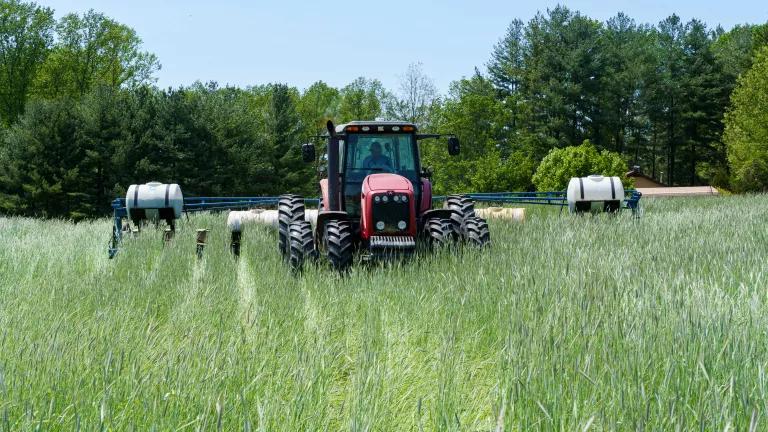USDA Moves Toward Fairness in Food
The Biden administration has rolled out the first of its long-awaited rules to promote fairness in the meat sector. It’s time for the agency to deliver meaningful change.

Broiler chickens grazing on pasture at Nick’s Organic Farm, owned by Nick Maravell in Adamstown, Maryland. Meaningful action to promote fairness under the Packers and Stockyards Act could ensure that all producers must play by the same rules.
Photo Credit: Lance Cheung/USDA
The Biden administration has rolled out the first of its long-awaited rules to promote fairness in the meat sector. As we continue to lose farmers, and many people can’t afford food, more sweeping actions to carry out the President’s Executive Order on Competition remain urgently needed.
Today’s proposed rule could help level the playing field in the notoriously unfair poultry industry by requiring disclosure and transparency in pricing. The rule reflects movement by leaders – in both parties – to finally address calls for change from producers and consumers who have been squeezed by dominant market players. Paired with USDA’s new plan to support fair and competitive markets, actions proposed in the recent House Judiciary Subcommittee on Antitrust, Commercial, and Administrative Law hearing on the impacts of concentration on our food supply, and legislative efforts like the Prohibiting Anticompetitive Mergers Act and the Meatpacker Special Investigator Act, this poultry rule has the potential to support a meaningful shift in the marketplace – especially if USDA builds on it with the additional information the agency plans to gather.
In addition, USDA’s plan to address unfair practices later this summer could have even farther-reaching impacts. The Packers and Stockyards Act (PSA) prohibits meatpackers from using “unfair” practices, and USDA could include specific prohibited practices in its rule that prevent meatpackers from profiting from pollution and unsafe working conditions.
The baby formula shortage is the latest heartbreaking manifestation of a consolidated food system that lacks resilience, but the root cause is not new. Communities across the country are hurting – losing wealth, health, and resources, so a handful of major companies can make more money. USDA is once again listening and helping the public connect the dots between decades of supply chain consolidation and the brittle, polluting, and patently unfair system that produces most of our food. It’s time for the agency to deliver meaningful change.




